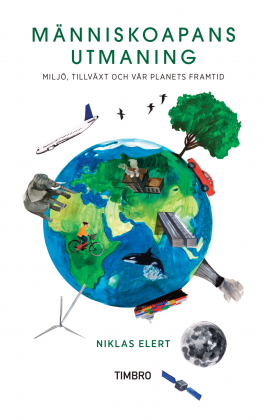Människoapans utmaning: miljö, tillväxt och vår planets framtid
Abstract
Mänskligheten reser sig just nu ur fattigdom och misär i en omfattning som saknar historiskt motstycke. Ekonomisk tillväxt och teknologisk utveckling har samtidigt gjort människan till en naturkraft, som sätter stora spår på planeten.
Vad händer i slutet av det här århundradet, när elva miljarder människor får samma levnadsstandard som den vi har i Sverige i dag, om inte högre? Klarar jorden det?
Budskapet i Människoapans utmaning är att ekonomisk tillväxt inte behöver vara dåligt för miljön. Tvärtom är en rikare värld på många sätt en förutsättning för en grönare tillvaro. Men det bygger på att vi förstår hur marknadsekonomin kan hjälpa oss att frigöra vår kreativitet och lära av våra misstag. Kapitalismen ger oss möjlighet att anpassa oss och åtgärda de miljöproblem vi tidigare orsakat.
Människoapans utmaning blickar mot en framtid fylld av experiment, där äganderätt, ny teknik och miljarder människoapors kreativitet räddar planeten.
Elert, N. (2014). Människoapans utmaning: miljö, tillväxt och vår planets framtid. Stockholm: Timbro.

